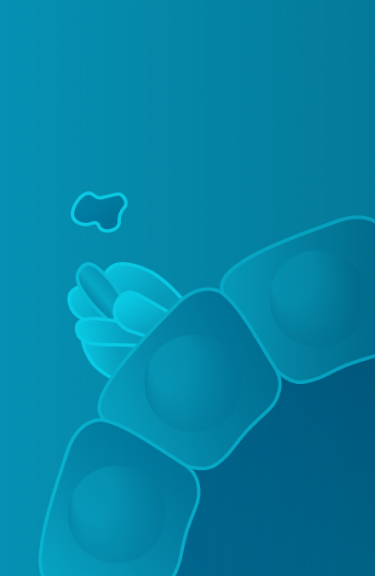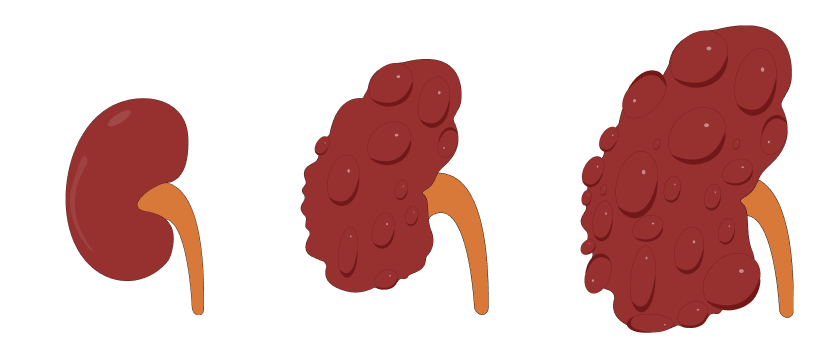
Tolvaptan is used in adults to treat autosomal dominant polycystic kidney disease (ADPKD). Tolvaptan should only be prescribed by a doctor experienced in the diagnosis and treatment of ADPKD.
ADPKD is a genetic disorder which leads to the growth of multiple cysts (sacs filled with fluid) on the kidneys.
Over time, the cysts grow in size, which can damage the way your kidneys work and may ultimately lead to kidney failure.


By blocking the effects of vasopressin, Tolvaptan is able to reduce the growth of cysts in the kidneys and slow the decline of kidney function. This should help protect your kidneys from damage and failure.
Because of the way Tolvaptan works, you will produce more urine, causing you to urinate more frequently during the day and at night. This may become less pronounced over time.
Click on the 
During treatment with Tolvaptan, your doctor will arrange blood tests to check for changes in your liver function, as follows:
Before taking Tolvaptan you should discuss carefully with your doctor if this medication is suitable for you, taking into consideration the potential benefits and risks involved.
Once you and your doctor have agreed that Tolvaptan is suitable for you, your doctor will ask that you sign a patient-prescriber agreement form (PPAF), stating that:
Do not take Tolvaptan if:
To prevent pregnancy while on Tolvaptan treatment, women of childbearing potential must have effective contraceptive measures in place before and during treatment.
Do not take Tolvaptan if you are pregnant or planning to become pregnant. It is not known if Tolvaptan will harm your unborn baby.
Always take Tolvaptan exactly as your doctor has prescribed. Check with your doctor, nurse or pharmacist if you are not sure. You can take Tolvaptan with or without food.
Tolvaptan is taken twice a day in two different doses. There are three possible dose combinations that your doctor may prescribe:


Adjusted dose if you are taking certain medicines:
Your doctor will tell you to reduce your usual dose of Tolvaptan if you take certain medicines as these medicines could cause you to have too much Tolvaptan in your blood. Your doctor may reduce your dose to the following:


Serious warnings and precautions – Liver damage
Your doctor will arrange blood tests before you start treatment with Tolvaptan and then at regular intervals during treatment to check for changes in your liver function.
Side effects of Tolvaptan treatment may include:
If any of these affects you severely, tell your doctor, nurse or pharmacist.
Talk with your doctor, nurse or pharmacist if you experience any of the following:
Stop taking Tolvaptan and seek immediate medical help if you experience any of the following:
This is not a complete list of side effects. For any unexpected side effects while taking Tolvaptan, contact your doctor, nurse or pharmacist.
Before starting any new treatment, tell your healthcare provider you are on Tolvaptan.
As with most medicines, interactions with other drugs are possible. Tell your doctor, nurse, or pharmacist about all the medicines you take, including drugs prescribed by other doctors, vitamins, minerals, natural supplements, or alternative medicines.
Always take Tolvaptan exactly as your doctor has prescribed. Check with your doctor, nurse or pharmacist if you are not sure.
While taking Tolvaptan you will produce more urine, urinate more frequently, and urinate at night. If this causes you concern, consult your doctor, nurse or pharmacist. This side effect should become less pronounced with time.
Here is a list of potential reasons you can give when you need to use the bathroom:
Consult your doctor with any questions about your disease and your treatment, or to find out if the advice on this website is appropriate for you.
For more information on LUPIN-TOLVAPTAN, call toll free: 1 844-587-4623